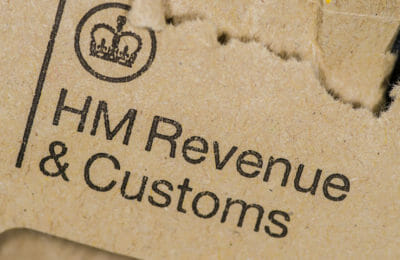Payroll fraud can cause significant financial damage to a business. According to the Global Payroll Association, it costs companies in the region of £40,000 each time it happens. In this post, we look at how payroll fraud happens, how costly it is, and how you can prevent it from happening.
How does payroll fraud happen?
Payroll fraud only occasionally hits the headlines. However, it is a real problem. In August 2024, a payroll officer from Kettering was found guilty of creating false records to steal £14,000 from a food production firm. At the time, he was serving a suspended sentence for a similar offence. A year earlier, a payroll clerk set up six accounts in his own name and a family member’s to steal £350,000 from his employer. He believed a computer glitch hid the thefts, but he was exposed after an audit.
Payroll fraud can happen in a number of different ways and can be perpetrated by both employees and employers. Below are some of the most common.
- Ghost employee fraud. This is when someone creates a fictitious employee. The ghost employee receives a salary, which is received by the fraudster or an associate.
- Sick leave fraud. This happens when an employee claims sick pay whilst actually working for another company.
- Timesheet fraud. This can happen if someone clocks in and out at incorrect times, falsely claims hours they haven’t worked, or gets someone else to clock in and out for them. The latter is known as ‘buddy punching’ fraud.
- Commission and bonus fraud. This occurs when employees falsely claim commission and / or bonuses they’re not entitled to.
- Misclassified employee fraud. This type of payroll fraud happens when an employer misclassifies employees to cut costs. A common method is by classifying full-time employees as contractors, meaning they don’t then pay the correct taxes to HMRC.
- False expenses fraud. This is when an employee claims personal expenses as a legitimate business expense. For example, they might take friends or family out for a meal and claim it a business lunch expense.
- Pay falsification fraud. This can happen if an employee teams up with payroll staff. The person responsible for the payroll will pay the employee a higher salary. The employee will normally split the extra money with the payroll team member.
How much does payroll fraud cost employers?
Payroll fraud perpetrated by employees is expensive for businesses. As we mentioned earlier, each instance costs employers around £40,000. This figure is based on a fraud costing a monthly average of £2,217. Because payroll fraud lasts an average of 18 months before it is detected, that adds up to a figure of £39,907. One source estimates that this kind of fraud costs SMEs a total of £12 billion a year.
How to prevent fraud
If an employee commits payroll fraud, it can lead to criminal penalties such as fines or imprisonment. It can also land the employer in hot water with HMRC and leave them facing financial penalties. For these reasons, it’s preferable to put in place effective measures to prevent payroll fraud in the first place. Some of the key steps you can take include the following:
- Check payroll information carefully. Warning signs of fraud include employees with no tax deductions, large discrepancies between the wages of employees with similar roles, and employees with similar personal details. Employees with very similar names should always be investigated.
- Use robust clocking in / out procedures. If employees need to punch in and out, invest in a system that uses biometric data (such as a thumb scan) to avoid timesheet fraud and ‘buddy punching’ fraud.
- Keep your HR and payroll departments separate. This makes sure anyone added to the payroll is independently verified by a member of the HR team. It’s also a good idea to separate duties. For example, you could ensure that one person is responsible for inputting payroll data, while another is responsible for checking it.
- Use an external auditor. An external auditor is much more likely to spot irregular or fraudulent payroll activity.
- Outsource your payroll department. Outsourcing your payroll to an external provider such as an accountant will reduce the opportunity for fraud. However, be sure to choose a company with an established reputation. In 2018, a tax advisor who posed as a legitimate payroll service provider was convicted of stealing £6.9 million from construction workers’ pay by failing to pay deducted taxes to HMRC.
How THP can help you
As we’ve seen, payroll fraud is surprisingly common and very expensive for employers. At THP, we can help you prevent it in two key ways. Firstly, if you use our audit services, our auditors will closely analyse your payroll for signs of fraud. Secondly, if you use our payroll outsourcing services, you’ll not only help reduce the opportunity for fraud, but you may also cut the cost of managing your payroll.
About Jon Pryse-Jones
Since joining THP in 1978, Jon Pryse-Jones has been hands on with every area of the business. Now specialising in strategy, business planning, and marketing, Jon remains at the forefront of the growth and development at THP.
An ideas man, Jon enjoys getting the most out of all situations, “I act as a catalyst for creative people and encourage them to think outside the box,” he says, “and I’m not afraid of being confrontational. It often leads to a better result for THP and its clients.”
Jon’s appreciation for THP extends to his fellow team members and the board. “They really know how to run a successful business,” he says. He’s keen on IT and systems development as critical to success, and he continues to guide THP to be at the cutting edge and effective.
Read More











